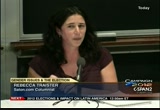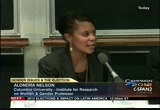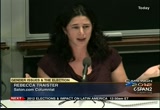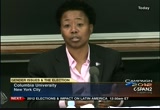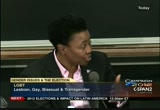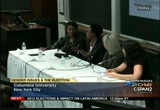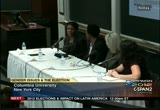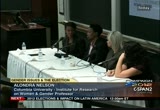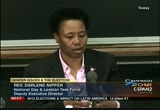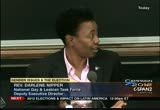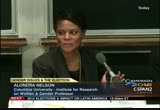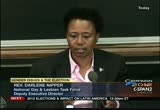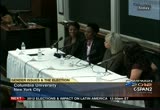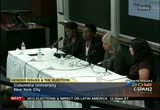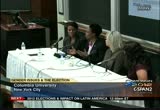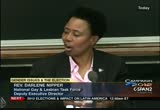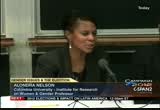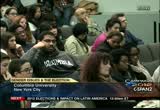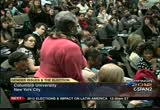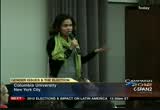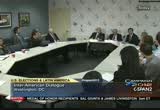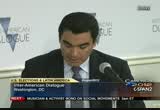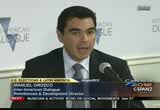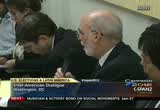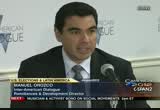tv Capital News Today CSPAN November 12, 2012 11:00pm-2:00am EST
11:00 pm
11:01 pm
country. >> this is one of the things and you should look it up because they are hilarious. on the pages of the republican senators who wanted to defend planned parenthood or who are making outrageous statements, people started they caught the sarcasm bombings these legislatures. so your people on the public facebook was over at kerry or whoever saying, i need an appointment. since you estimate that willie's house, at this stage. and people were so funny and creative and that helped. it's the spirit and technology of the internet. >> and i suppose everybody saw this going on amazon.com and look at every binders in the thousands and thousands of comments. this finder just doesn't hope my
11:02 pm
comments. >> priority for standardized effect is. there are no women in it. >> was speaking associate media, one of the questions is prompted by treat from election evening. when we realize we had part of the historic results of this last week where he had 20 women in the u.s. senate, and historic number and rebecca rightly reminded us that it was in part because of things like emily's list that i want to have a conversation about the kind of institutions and the organizations that have been working quiet they all this time to make this moment possible. i don't have to say something about emily's list. >> families list within washington politics, it is an incredibly powerful force. at some point they were the largest organization.
11:03 pm
i don't know if that's still true, in the day of the super pacs, they are not the largest anybody. so emily's list is an organization that supports democratic pro-choice women for all kinds of offices around the country. they are very powerful and have been working really hard for a long time to get more women effect did. other celebration about the creator of the woman, sometimes you want to say this is terrific progress in other times you say wow, 20%. but it's very, very work getting women elected. so i cited emily's list because they're the biggest. but there's grass-roots organizations, places like the white house project to go around trading at women, which is one
11:04 pm
of the biggest problems in terms of electing women. you know, organizations like sam bennett wins that campaign for him. all kinds of organizations support getting women into politics. >> and the same thing is true for. we have the victory fun working for a long time. our key tap that is simple in some ways we used to say that knowing someone is enough to the folks, but then we learned something and this is a big issue for this election that we can see the value in the spirit we learned you have to do more than just know someone who is. you actually have to have a conversation. and this is scary for some of us, right? and then they learn not only did have a conversation, but shifted a conversation about who you are
11:05 pm
and who you love. so you have to have a conversation -- you have to get to the point of saying to someone, you know, what do you think about this? let me tell you about my -- you don't have to be queer or a person who is lgbt, but having a conversation about why this matters in how this is like any other family and why it's about a common humanity. we had persuasion campaigns going on for years and years. anyone know with them losing the plot. we are peeked down, right? but this has finally come to the point where we could actually stand up for campaigns at the same time, but not because they cycle one. we were working in maine in 2000. we have 1.7 million conversations of people in maine
11:06 pm
just a cycle. so this is about having deep conversations about who we are and who we love and being a person of the people around us so people can say okay, right, you're actually having the same issues they have. we both have problems with garbage pickup. i think we should stand with you. either way, will you support marriage equality? i'll help you with that garbage. [laughter] a lot of spent on the ground. obviously the lgbt task force is one of them, but many others could be said of freedom to marry and solely focused on that issue. then organizations like slb and the work solely on "don't ask, don't tell." it's been a lot of groundwork, but i do think the online outlets are important. i thought they were so brilliant and just miraculous -- how
11:07 pm
quickly they organize around women's issues and important of us not allowing some of the commentary around abortion rights center of personhood in particular. i thought they got messages to all kinds of people. what they did was have the list of people working with from the move on days and the old list and pull those less forward, including folks on emily's list of vibrant communication, where everybody could get the message that it's not okay. i agree with you, rebecca it wasn't about voting. it's not okay for you to make this kind of commentary about our lives at this time. he didn't have to be during the election, so i thought that was great. >> a mention of emily's list made me remember it sounded and.
11:08 pm
and just last year, anita hill published a book about the disproportionate effect of the housing crisis on women and that makes me think there's something else going on in the last four years, which is the feminization of poverty and the tremendous impact this debt crisis, particularly subprime mortgages is disproportionate when men come away when an minority women and i think is the kind of invisible force as well as the ballot casting choice. >> the reality of this lgbt been completely lost in that picture. a lot of times people talk about single mothers and in fact, these are people who have families and partners. people don't recognize that.
11:09 pm
it's why they think it is so important that the administration agencies have working to change regulatory policy and not just focusing on legislation because things like how you define family in agencies like how that are critically important to women who have issues with passing and women who face even greater discrimination. >> i love this point about you having been working since 2000. there was a way in which some of us so underestimated but was possible in this moment that on election night it felt like magic. i want to raise the institutional question to underscore that people have been working really hard for years and decades to do this. so one of the great successes that they mentioned at the last week was that we now have 20 women in the senate and lots more women of color in the house of representatives, the way very
11:10 pm
few women of color in the senate. very few black women were elected in this election cycle although there are games where asian-americans in the tenets and so i wondered if any of you -- i don't know which you might have to say about that, but what do we think about an organization that begins in the wake of the anita hill controversy and the dancer produces to see if it's a factor are not producing black women intellectual politics in a particular sort way. >> first of all, i should announce myself as a member of the proper demographic. so the gender gap as far as voting goes his huge this year. it is thicker than in 2008 after many predictions of his going to
11:11 pm
narrow. however, white women voted for mitt romney. when you broke down and women devoted other race, it is just sending. unmarried women made up 22% of the electorate. but they voted 70% to 30% democratic. one of color, latina women, black women that this is how barack obama won the presidency in races were decided. white women were not on that side of the vote. i would say that what i hear often, and this comes to issues of getting more women to run and more women of color to run is everybody will tell you it's a pipeline problem. if there's too many bylines from women or women of color in the media, everybody says women never pitch.
11:12 pm
and so that's something you hear. for me, one of the stars of this political event was nina turner and ohio. as you'll see in television doing incredible work on voter suppression staff in ohio. she was not up for election, but she was a star and is everybody talks about the other person that the person was nailed for, a republican black woman who just barely lost to elect for a moment like she was going to win her house seat. this is a problem within the feminist movement and has been always. the question of moving forward, but not just for one kind or a couple of kinds of women.
11:13 pm
these are issues that are very much in play in our activism. >> i think also, black women face the intersection of prejudices. on the one hand, there's too much criticized for being aggressive because of the stereotype of black men will consign him. it's certainly true that black women when they been expressive in the senate coming in now, who was it that couldn't get him, she had dreadlocks, maxine waters. they kept asking her for idea and arrested her because they didn't recognize here. she was mocked endlessly for her assertiveness basically.
11:14 pm
the same thing that elizabeth warren faced in scott brown, which was to sneer at her as an elite professor, which really got to me. it means we started teaching about the same time. for women of color and the entire united states teaching the, two blacks, one nation, one latina. and that is not so long ago. a few years afterwards i went into the classroom and having mostly men in a classroom, most of whom on election night before the election was decided i had to turn us in a classroom and was filled with that romney's. i woke up to a brand-new world. this is the way law schools
11:15 pm
looked when i was coming out. when you first started teaching to the woman, when he lived in massachusetts he didn't just say professor, he said blake though you could really profess anything. i really rocketed me back. so i think in addition to the mockery generally and the electorate, in addition to the demeaning of women generally, you sort of have a celebrated when were hired, but it's also a double whammy in a political setting. >> i'm in washington. it's an interesting place. i love d.c., but when you look at the washington that we are talking about, when you actually
11:16 pm
go into the halls of congress and have a visual, the next time you look at something going on mtv that is showing one of the halls, just take a look at it. it will look different from this room. it's almost like a reverse of what we have heard about were the demographics of this country are going. so i just wonder how attached we are just thinking about what happened in the election this time. it's almost like read a sense, but what is actually occurring in terms of the change in the nation. when it comes to said seven people, we have the unique position in opportunity because we cut across all these demographics. the issues of race and class and inability to actually have any real conversations. i do think it's very difficult
11:17 pm
for people in positions of power in terms of legislators to take a look. if you don't have do until this moment, what's really changed? when the electorate actually really does seem to be changing in terms of the demographics, then why would you do history we have? why would you do anything different? now we are at the point where this election, was to learn more about what happened will be a turning point for us to determine whether or not our electorate has changed enough, the democrats have changed enough that people are voting enough that we really need to make significant changes in the next opportunity for us to do with that issue is going to the midterm elections. not 2016, the midterm elections. >> the other thing that's going to be happening in coming elections and the reason why it matters is the 17 to 20 women.
11:18 pm
by sir paley mattered, why barack obama matters. but we are in the process of doing is expanding our idea of a leadership could look like if this is crucial to the question of how we view and why there are more women of color, were men of color. we have to imagine what a candidate could look like. so if there is a young white man in college and graduate school and is particularly smart and inspiring and excited and committed to doing good public work, batman will be sold you should run for office. if there is an equivalently inspiring, exciting, smart women of any color, it is much more common to say wow, you'd be great in politics. you should manage the campaign.
11:19 pm
that is one of the reasons it matters as soon as we begin to see that young women when that young men of color leadership, that is part of why it matters barack obama is our president. a generation of children for thinking of president looking that way. people who grow up in states with women governors, you know, tulsi gabbard who's going to be sworn in in hawaii. she was just elected the other night. then it makes a much more likely at the earliest asian people are going to enter a list of public politics for the people around them to say hey, you should run, which is that crucial thing to get people at the beginning so they can amass the power to get the big jobs in the most powerful parts of their lives.
11:20 pm
>> and let's not leave out tammy baldwin. the person happens to be. >> i was just about to raise the question about tammy baldwin, another first come the first lesbian, the first gay center in american history. what special expectation or constrictions are possibilities might come with her being the first lesbian in the senate. i wonder if she might experience the same catch-22 that president obama experiences, where on the one hand he's not being as forceful as the black agenda, but on the other hand he's had for doing such things. i'm wondering if senator tammy baldwin will face pushed from one constituency that she's not sane to advance a queer agenda and on the other hand saying he represents all of us in this
11:21 pm
content. you should be pushing such an agenda. >> i think yes, she is going to have to face that. on the other hand coming to recognize she's coming for being a representative to being a senator, so she has a lot of ex-areas and relationships on the hill. i think she's very much aware of the dynamics that she's going to have to save, especially going onto the senate side, which is obviously very, very different. i believe tammy has the kind -- the way she ran her campaign, the kind of levelheadedness and clarity. what i love is the clarity of focus with which her leadership on the lgbt caucus. she's very clear, very focused and she recognized the dilemma she sang, dynamics at play and she'll walk the line quite carefully. when you're in these rules come it's easy to talk about what they do and what they don't do.
11:22 pm
you don't get to say whatever you want. you do represent a broad constituency that's an array of people. it is your responsibility to them that will make sure whatever you're doing is actually reflective of the broad constituency you actually represent. so it's not just about lgbt issues. i think it's going to be a challenge, but there's no one better, so that's exciting, too. she's really strong leader. >> i want to go back to mainstream of the room full of mitt romney's. i don't really mean to insult that romney. i can use the finder to do that. it is about the fact there is a presumption that that's the way the classroom should book and to reinforce, that's a general cultural exit patience comes
11:23 pm
across and how we greet those who come to positions of power that is fine for donald trump to ask for barack obama's academic record spirit but nobody thought of asking that romney for his academic records because of course he blogs in the classroom. and so, make you miss about the absence of a good thing that romney and the fact that todd akin, whether he was the beneficiary of affirmative action, how did he graduate with a bachelor of science and do their thing independently of desire. for that invisible assumption carries all the way over to the statement of what he said right after the binders, and, which was, i said let's get some good
11:24 pm
ones. what he actually then proceeded to describe is exactly the supreme court. what he said was he performed affirmative-action, all things being equal, took into account that they were women. it is very expertly -- the last several affirmative-action have been white women suing the box that displays them, but in fact jurisprudential effects white women, to. so if you don't believe in affirmative action, then how can that romney believe in affirmative action for what he supposedly did in the state of massachusetts. it is completely incoherent in that sense. the only coherent access is that
11:25 pm
it's really directed against minorities and african-americans but the incredible benefit of affirmative-action of this kind of things which seem so reasonable is completely invisible. so we need to bring the logic of those things together. >> absolutely. although the question being asked at that time was about pay. about people were saying it could have been presumably bringing them in at much lower rates obviously. >> i'm sure to check out the time he went to dinner. >> so let's talk a bit about this amazing development with regard to marriage equality. so for states effectively this week move forward with marriage
11:26 pm
equality. and so, i wanted to first ask you if you could just talk about the work you've been doing around us. i know that like the main case people on the ground a long time before in maryland you are working on the ground in maryland. >> yeah, these teams on trends things take a long time. the folks who are opposed to the freedom to marry than the generators of the process. so they have been dictating what we should do and are very much in the defense for a very long time. what was really exciting this time was made was the first time we did it for a ballot measure that was because we had been defensive for so long and built such a strong ground game in november talk to everyone in the state for so long about this issue in understanding how people moving along. our work is really changing hearts and minds because we
11:27 pm
write if you can imagine half the people with you and how far and another sent squishy number in the middle. the question is, are those people really in the middle and just don't know enough about who we are and if we can get those folks to move would have a chance. simeon was a great example of a scene in opportunity and seizing it to go forward and proactively putting something on the ballot measure. i have a lot of folks in this room and i think somebody should be asking, you know, using a ballot measure, so proactively using a ballot measure? i thought you actually would be a post using a ballot measure because that i've been fighting for all along. and i don't think we should ever put in minorities rights to popular vote. however, this is the circumstance even put him in this particular fight. this is not something we cannot and said we should go to the
11:28 pm
ballot and put our lives to the popular vote. because it is dictated by opposition, we've had to learn how to develop the skill sets needed to move folks to the position of supporting the freedom to marry. so a lot of the work on the ground helping people to understand this is really about love, fairness and been very overt about who we are, about fairness and everyone getting the chance to live befallen reductive life in society. very basic if you want to go this far, american values. so i feel that was part of what happened in maine. like new york, the legislature actually came forward with a bill which is great. we were on the ground doing faith work in that cycle, which was flashier, not in the current election cycle, building up to the current election cycle,
11:29 pm
knowing immediately once the law came into play steady opposition would do what they did. they get petitions and put it up for popular vote. so having those conversations and doing work back then began the conversation and opened up the opportunity for us to have ministers to have leaders that faith about why it's important for us to support the freedom to marry. this is a critical, critical issue because their biggest opposition has to do with people religious beliefs on people feeling that doesn't fit within that church. i'm in minnesota, even though we feel great because we haven't enshrined a ban against same-sex marriage come it's not the same because it's not as though we actually got passed supporting
11:30 pm
things such as marriage. we just stopped a constitutional amendment to ban. so there's still a lot of work to be done. i could go on and on it a lot or detail. suffice it to say the conversations, the work we are doing is training volunteers on the ground, training leaders so that readers can go out and amass the kinds of campaigns needed that allow people to have one-on-one conversations either at the door, knocking on the door and having conversations in person or on the phone actually having conversations with people to say look, how do you feel about this? tell us more about it. this is persuasion, different than sangria combo price is learning and understanding what is the obstacle for this person is there something about what i understand my life and may experience to open up the
11:32 pm
the. >> let folks are going to lose this opportunity for same-sex marriage. the reality of it is that, you know, first of all, there are black people. there are black people who happen to be clear. >> imagine that. [laughter] >> there are black queer people and people who are not clear who actually support fairness and equality and don't believe in discrimination. like my mother. my mother is just a regular person, you know, she is not political. but what she said right after the election was, well, this is really a civil rights issue and
11:33 pm
that people are using the bible to confuse the matter. and i thought, yeah, that is so true. it is true. it really is a civil rights matter. the truth is that it is a civil rights issue your story of how this happens and being forced into risky proactivity, in terms of the kind of candidate that we are voting on, keep thinking about what i said before about how the democrats are in this full throated defense of women's rights and it turned out to be really effective for them. i also think about the 2008
11:34 pm
race. to give this incredibly moving and full throated voice to this issue that everyone had been scared to make too much of the fact that he was black. later, hillary clinton, who had not been very good about talking about the history, and i think one of the lessons that perhaps the progressives could take from a lot of these stories is that in the years that kinds of people have begun to be included, we have been very shy about making our voices on these matters heard. hopefully we'll no one notice that we are just part of it. in fact, when it comes to women candidates, they have always been encouraged to respond to a sexist attacks. it would make them seem like victims.
11:35 pm
in the 2010 midterms, there was a study done by linda blake discovered that if you say no, that isn't sexist, but has a tremendous effect on how people respond. and i felt that the simpletons. i always worry about this that we will retreat back and be nice and not say anything. but i hope we wind up emboldened about owning our civil rights issues. hillary clinton said -- she said lgb key issues were civil rights. this is something people are beginning to talk about less shyly then they have which is great.
11:36 pm
>> that's what i was really worried about what elizabeth warren. she seemed scared to acknowledge of knowledge that this was a question of affirmative action. and she really didn't know how to react and to really deal with that head-on and to really call it out. i think it has, you know, put scott brown on defense. i also think that i'd never heard her talk about what i just mentioned, that she was one of the first women to teach in the united states. and to really call forth some of that history. because she is not islam but first women to teach, but she was one of the first to teach in contact bankruptcy and support. i was worried about the extraordinary history of her writing as a scholar around bankruptcy. i have heard her say more on jon stewart then i heard her during
11:37 pm
the official advertisement. she was almost afraid in that stereotype sensors being seen as too much of a know it all or a goody two shoes. >> i profiled her for "the new york times" magazine. it was quite clear that they were urging her to take the seat. when she was off the record, there were certainly thoughtful conversations about gender and race and it was the 20th anniversary of anita hill. the 20th anniversary of the hearings. the moment that they stormed the senate. but it was clear that part of her strategy, there was not to be a discussion about her gender, even though she was the first. like many, like many states, new
11:38 pm
york and have a really good one either. but there was no technology that this is something different and she was different from the others in some way. >> we have the experience now. i think we have a very current experience of his folks in the positions that they are in. elizabeth warren, coming from where she was in the administration. tammy baldwin coming from the house and moving to the senate. we are building the current day version of experience that we need to show what it is and what is okay for us to say this legislative candidates. now we know what the electorate could really handle. because i think until now, campaign strategists are very afraid. as we say, now it is an opportunity to learn from this
11:39 pm
particular election. >> so paula, i want to ask whether it makes a difference from a legal perspective. whether or not marriage equality is through constitutional bans or ballot measures. in the long view, we just received by any means necessary and however you can get it drew in a state? doesn't matter in a long legal history? >> that is a tough question. [talking over each other] >> i am very practical about this. i does tend to think it makes a difference with constitutional jurisprudence. one thing that does worry me about, the defense of marriage act, but about what is happening with civil rights and voting
11:40 pm
rights and women's rights and immigrants rights. and it is the ability of the president to appoint supreme court justices. and many people felt it was a good thing when robert upheld part of the affordable healthcare act. one of them is the victim and says that it would not be upheld by the promise of the commerce clause. it is the cornerstone of the entire civil rights movement. the insurance industry, the whole broad enormous impact of the insurance industry, they are
11:41 pm
not going to be part of the commerce club, then the ability to ride a bus or to enter a store in the whole notion of public accommodation is founded in the commerce clause. and i think that, you know, does the things that i worry about. that is the ground of all the conversations we are having and the current supreme court does not seem committed to that last 50 years of jurisprudence and that worries me great deals you feed. >> what other political issues that are important for queer communities -- the energy that
11:42 pm
we are putting around marriage equality issue. >> this is an important question. issues of employment discrimination are critically important. even things like health care disparity, if you will, the reality of where lbgt people are, it is not quite clear and it doesn't bubble up to what is being talked about right now. because marriage equality had been at the forefront. and i do think in some ways, it is why the national gays and lesbians have spent so much time trying to broaden this to make sure that transgendered people in those issues are included in all the work that we do. it is widely thought very hard to make sure that gender identity is included in the
11:43 pm
employment nondiscrimination act. because we could go the other way with incremental progress with his progress. but we would've left out a whole swath of the community. folks who have greater experiences of discrimination, violence is still an issue. we forget that people are still being violently attacked because of who they are and because of who they love. i think a lot of people, in many of our communities across this country, people are actually being attacked and harassed and even murdered just for being lbgt. i just had a conversation with someone who gave me a prime example of an older gentleman in georgia who had just gotten attacked. it was one of those poignant stories that reminded me of why we do this work.
11:44 pm
the other thing we are concerned about is not only drowning out the other issues, but sucking out all of the resources. frankly, it takes resources to get this work done. we have to pull people together. we have to get people to do the work. it takes resources. it takes bodies and that takes money. the other issues get left by the wayside. once equality is achieved across the country, obviously, we will start to bubble up and see some of these things happen. but we have been talking about what will happen we need to be prepared for what young people are facing. there are a lot of issues that
11:45 pm
continue what we have done so much visibility. there are real changes that need to happen. changes that we need to put in place are actually going to impact the lives of everyday, lbgt people. and we have to focus on those things. again, there are so many. those are some of the top things that are important. someone asked me recently, you know, what are the top issues facing lbgt people. and i said, i don't know, the economy or jobs -- jobs and health care. and they were like, you know, what are the lbgt issues? you know, these are the issues. we actually cut across every
11:46 pm
demographic status and that means that in many ways, every issue that is facing other people in society are the very issues that we are facing, too. the ones that have been the big issues, maybe a little bit more unique to some of the specific issues. but they are not the only ones. if we can make ourselves visible, obviously it is not inclusive of the entire community. he beat out a whole swath of this. how many people are married? even in the broader general society versus people who aren't married. that is even a smaller number for same-sex couples. we have a lot of work to do and a lot of discrimination of people continue to face. >> i wanted to talk about
11:47 pm
thinking about the future of marriage equality. however it goes forward through the states. there is very much a way that that could be mobilized for an aggressive agenda. i wondered if he wanted to make any connections between an effeminate history of this kind of politics. >> i am of a different generation. and so, my mother and father
11:48 pm
were hoping that i would get married at some point. my own sense of marriage is very much inflected by models and other countries. it is just civil. you want to get married, you go down to city hall and you to get a license. if the property arrangement. the concept of marriage in this country is so overlaid, with religious dimensions of it. i think that my thoughts are, you know, they are not really about the current political movement in this country. the degree to which we are an extremely conservative religious
11:49 pm
sense of marriage and family -- it isn't just about the moynihan report. it isn't just about blacks and single mothers getting married. it was a moment that we have lost in the women's movement where you could, you know, have a life of chosen partners dividing property for the sake of very specific purposes of certain kind of benefits. but it was a little bit beside the point.
11:50 pm
if you want a religious endowment god's blessing, you know, you go and get married. i do see marriage. i see it as a kind of property transfer. i also think when you think of it as a civil union, it clarifies other things, like the lack of benefits we have generally. the lack of them in society. i am so concerned about this argument of people who get married have higher incomes. and why should that be? it isn't a marriage that is the driver of that. it's the fact that people who are single who are trying to
11:51 pm
work and take care of their children, they don't have the kinds of safety nets that every citizen ought to have, regardless of marriage status. that is what i think sometimes -- for both of my my thoughts, that is what i think we sometimes see. >> i completely agree with everything you said. except i don't think we have lost that moment. this is a book i'm writing right now. the book i'm writing right now, which is about a married and i'm partnered women, it is about this unprecedented historic moment. the marriage age is rising across the board for men and women. and it has risen especially for women. fifteen years after the heart of the women's movement. there have been other times in history and in other cultures where the marriage age had been
11:52 pm
higher. the thing that is unprecedented is that raising the marriage age is coinciding with women to have economic freedom. social freedom, sexual freedom, it's unprecedented. what we are seeing is what was a self-consciously political act at a particular moment during and after women getting married has now been absorbed as a mass behavior and is not self-conscious in a political fashion. but those of you that are undergraduates here, i bet a lot of you aren't even thinking of it. and that would've been pretty unheard of just about 40 or 50 years ago. i believe you got a carnation when you graduated and you are engaged. and you didn't get one if you are not engaged. that is something that gail collins wrote about.
11:53 pm
>> it was very symbolic. this is an evolution of behavior that evolved for a lot of reasons. but chiefly because of the gendered expectations of domestic life. when they bump up against the new possibilities for professional and economic independence. so without it, necessarily being a self-consciously feminine fact, it begins to make a lot more sense for women not to get married. this is true in privileged communities and in poor communities. it is no longer economically sensible in all cases to marry at 20 years old or 22 years old. you will see the rising marriage
11:54 pm
age -- about the way we talk about the intersection of poverty and marriage. it drives me insane as i work on this book. there is a big story of the summer in "the new york times" about the difference between two women and the difference between him was at one of them was married and one of them wasn't. and there is a way now that even those on the left, those who are interested in talking about poverty, they declare that marriage is a factor -- the differentiating factor. and it is an easy way to talk about issues of poverty without having to deal with the systemic issues and address the really hard part about higher minimum wage and child care and better education systems and other infrastructure that would allow people to live in any number of ways.
11:55 pm
instead, it's much easier, even for those on the left, to talk about marriage as the differentiating factor. i think that is a real mistake. that is something i am trying to battle. >> when you put it into the context of marriage and middle-class women. you know, again, i am of a generation where i am surrounded completely in law schools and law firms and you are not seen as inadequate partner. you are not a good harvard graduate was supposed to end up with. so there was a whole generation of us who went into the profession and the opening of those doors. and you are completely dateless and you were sort of, you know,
11:56 pm
the ultimate wallflower. i think that is something that still existing today. this divide is striking to me between michele obama and white women and black women. something she has given up her career to be the first lady. and many think it is the most wonderful thing in the world. the successful woman didn't have to be a spencer bachus actually in the context of a man that loves you -- there is a romantic overlay. they are so rarely seen as beautiful and lovable. but this symbolic dimension of what michele obama, she so clearly is adored in this lovely spontaneous way. i think there is a subtle difference in the way in which
11:57 pm
black women -- that she could give up her career and be a lady, but she is not someone who is working all the time. our history as has been we work all the time no matter what. and to be able to give that up and helping one's own children -- i think it's very powerful in terms of this function when we talk about marriage. >> okay, weird when ask you one last question before we open for a q&a. the question i want to pose is what is next. what's next? what is next for the obama administration. it can be a grassroots on the ground question.
11:58 pm
>> okay. we can talk about this. oh, goodness. what is next. i mean, i don't even know what to say what is next. there is some stuff that i alluded to before around the administration continuing to move very strongly, which has been in some ways quiet to advance regulatory policy changes both at the executive order level and also, you know, the level at the federal agency. so much work can be done there. to make them real, we don't need to have legislation passed in congress. it is stuff like getting married
11:59 pm
and it would be great if we got everybody counted. you know, we don't know what to say -- we don't have any numbers. so you can have a conversation about a community. because in fact, somehow it is everything from that kind of thing to moving to the point where we actually have a supreme court ruling or moving to the point where we have a nondiscrimination act that is passed -- federal legislation that has passed that ensures protection against discrimination in the workplace
12:00 am
and public accommodations. there is a wide array of things that needs to happen. my heart says that we will continue to recognize everybody in the society for the value that each human being has been that we have collectively -- part of it that i don't want to forget about is that our movement is about love. you know you can talk about whatever else you, but it's about love and acknowledging who we love and envisioning families of our choice. i do believe that the reason it became a dead, it did for the opposition and conservative folks, we were creating families outside the box. we were creating families with anyone we wanted, walking up to people, not with the notion of reproducing or anything else.
12:01 am
but saying that you are my sister. in fact, the language is the way we used to talk about it, is that we talk about ourselves as family. so for me, i look forward to the president and the administration and moving us along so we can see that our electorate is far ahead of where our leaders have been. hopefully they will catch up to where we are and we can move forward towards a country where everyone is actually considered unaccounted and where policies reflect all of our needs. >> i think the citizens united
12:02 am
movement, having it be nonpartisan, and also consistent throughout the country. maybe that is a little bit beyond, but i do think that citizens united is the tip of a larger iceberg about who really controls a business power that is quite international and global. it seems to me that the expenditure of that money, we haven't really distinguished between domestic money and advertisements and global business interests. it is something that has to be higher on our agenda. many people have said that the popular vote to overturn that. i'm not sure that they do that at all. i think it was a close call and i think it will become even more
12:03 am
powerful and directed in the years to come, unless we deal with this now. the second thing that i think is really important is the judiciary. our federal bench is empty. that has a huge backlog and also is a concern because many of the cases that really challenge fundamental civil rights and progressive ideals, they have been sort of lineup to go through the appellate and supreme court and those will transform our lives for generations to come. so i think it is very important to get good people in the federal judiciary in the same court. >> my hope is that the
12:04 am
democratic party becomes emboldened by some of. among the things that happen on tuesday, several senators, one who really quite is to the left -- tammy baldwin, sherrod brown, and i hope there is a more aggressive approach. to pushing things there. i think if health care reform -- if i had that, i would say that immigration should possibly be my top choice. that cuts across everything that we've talked about today. i think it is a tremendous civil
12:05 am
rights issue and it is my hope that that will be the last thing -- among the lasting legacies of an obama presidency. >> wonderful. take you for that. and we have about 25 minutes for question and answer. you speak into the microphone. >> hello, thank you for speaking. my question is about crossing the aisle. and we want our politicians to be doing math, and i want to hear your thoughts. it is frustrating not being able to connect with republicans and conservatives, especially family members. if you like if we want this, we'd have to know how to do it
12:06 am
ourselves. the key to that of empathy and respect. i am a pretty empathetic person, but i have a hard time being apathetic towards people that are homophobic and sexist. so i'm wondering if thoughts are not. >> it is risky. you just have to take the risk that personal conversations. for me, i believe that stepping out and talking to people who i think, you know, might be different from me, is it important to talk to people just like me. having those real conversations and holding the representatives accountable. i do believe that we can do it personally. and it really is just about
12:07 am
taking the rest. there are so many people that seem different to have that conversation. >> i find that i always can't have those conversations and they are not long enough or deep enough. for the reason it is so hard is having to do with large earl structural issues. when i find the impact of the culture wars, over the last two years, for me, it has been interesting to think about the role of fox television. it has preset so many minds and made our language so reductive. i don't mean religious fundamentals, that it means that
12:08 am
financially nothing else and listen to you if you divert from that. so did think about it at that level before someone gets into the conversation, otherwise you have two sets of truth and they will never meet. there is the empirical truth. again, in our present political discourse, people are capable and it is very slippery. i look at the media, i also think that reading and putting it out makes it easier for people to take an. and i also don't expect to change individual's minds in the course of a conversation. i think it makes it individual and makes it personal, even when you are trying to be empathetic.
12:09 am
and this really is about ideology than about the structure and it makes it easier to talk about when you back up and think about what is the deep history of what you're thinking. >> i have also found, something darlene said earlier about the approach, telling her own story. and i don't mean just simply -- if you have a story that is personally attached, i mean, the most you can do, what of the things i love most about traveling either to speak or report is i am completely at odds with. i actually find it one of the more exciting parts of what i get to do for a living. it can be hard. but the the hard part is when you are in conflict. when you are entering the conversation and you could be. but the only thing you can
12:10 am
control is the version of the ideology that you believe in. the thing that is within your power to do is to put forth a good argument. just putting it forth, acknowledging whoever it the person is, say let's start complacently acknowledge, we fundamentally disagree, but i will explain why i believe what i believe. that is the part you can control. and it is easier to not have it end and angry tears. does that make any sense?
12:11 am
>> i came from the feminist era and i was gratified by the election results. looking at it through the prism of today, during the campaign cycle. a lot of people said i don't understand why we are not more agitated. over the fact that equal pay, child care, just equal access for women. we came very close with the era, the equal rights administration and women brought it down. they blew it up. now, i don't see a connect between what our needs are and equal rights. also equal pay, child care. we just seem to not -- i don't
12:12 am
know i read don't gather together. i don't how to talk about this with other women. you know, i don't want to do. i don't know why that discussion is going on. i don't know if i could be sitting here. in the 70s, people were a little bit more agitated. >> i will say that young women are -- there's a funny thing. there is a degree to which your experience dictates. i understand you're not claiming.
12:13 am
but there is that moment when suddenly you are like oh, wait, this is structurally damaging to all kinds of things. unlike the rest of the world, there is no paid maternity leave. what university fleet university childcare, these things are radical issues. young women do care about it. the structure of the women's movement is so different from what we knew in the 1970s. a lot of it happens online or through the media and so we don't see -- it's not as visible the kinds of street protests. i will say that there is renewed interest in the era. it is kind of enveloped be talking about this, which hasn't happened in my adult lifetime. i am 37 years old and i hear
12:14 am
discussions of it now over the past year or two that i have never heard as an adult. this is also why -- there is no great answer. but this is also why those extra three women in congress matter. that is why -- there is often questions about it doesn't really matter as long as a person's policies are right. what does it matter whether it's a man or woman in a given position. this is one of the reasons why it does matter. the experience of understanding how these are systemic and structural, or equal economics, professional, social, this is something that historically, democratic women tend to prioritize more. that is why it matters every time we get another female body representing. but this is why the issues of
12:15 am
representation, amongst people who share your views on these things, why they really do have an impact. >> thank you. >> hello, i am a freshman and i went through the whole application process. i am curious if sexual identity should be taken into consideration in regards to affirmative action. >> gender identity should be taken into consideration -- sexual identity -- deeming sexual orientation? well, that is really interesting. i hadn't thought about that before. i do think that given some of the information that we got in particular, i was thinking about the study that the national lbgt
12:16 am
task force said, a lot of those with their experiences of harassment and discrimination and to that end, it seems like what would be a good idea to have that included because there is discrimination there, i think that it makes sense to include vat. >> cohead. >> it seems to me that the principal of affirmative action is really underwritten by anti-subordination. and any groups ought to be considered as part of the attempt to make the walls within certain institutions more
12:17 am
porous. i am also really struck by the fact that you now have a phenomenon in certain schools where girls are just demographically much better student than boys. immature pastors. in colleges, we find many schools that have greater proportion of women than men. particularly those with football teams, they have been introducing affirmative action for boys. nobody seems to see any irony in that or any problem with that. and it does seem to me that if one thinks about this as a representational problem or a conversation where there is balance as well as anti-subordination, then you begin to broaden the conversation more generally.
12:18 am
there's also a great deal of conversation about whether or not a black person was very privileged should get affirmative action or not. again, you really think that racism is only about class and property -- and it is not. it is not about socioeconomic status. it is not just about it. at the same time, it does point to a problem but there are plenty of whites who ought to be on the conversation. that poor people also ought to be, you know, part of this conversation. so i think what anyone thinks about it in those broader terms of what is the goal of the history of the people, and it is to have an educated populace,
12:19 am
why not? >> hello, i am a graduate student here. my question is a theme that has already been raised and it follows a "new york times" op-ed that i read immediately after the election in which one of the obama pollster suggested that the narrative of the election is not just about demographics but values. so then i wanted to amplify the question about what becomes hyper visible in a it focused narrative of the election in particular. on the questions of identity rather than class, which is something that it seems that we are trying to get it through. you know, what else have we learned in this election about values? i'm not really sure what we mean by values, but what other sort of message came through in the
12:20 am
election? is not just demographics. it seems like we have gotten -- we have addressed this in terms of feminism and in terms of women's issues, and i want to amplify the part of the question about marriage equality. so much of what we are talking about is access to health care. the question that remains is how can i movement change the way in which we think about the role of the family in mediating access to public resources. >> yes, i think that is already a part of what the movement is doing. i think the problem is what is taking up space, and that is not as much dictated, although this is not totally true, but it's
12:21 am
not as much dictated by our movement as it has been dictated by the opposition bringing forth marriage and is following through on it. we did a document called envisioning our families. it talks about the different considerations and concerns that we have. everything from some of the things that you mentioned in terms of who gets taken care of and why and how you get your health care taken care of when you are in relationships that is not recognized and you have to come up with some sort of configuration around contracts and so on to actually relate to each other or get each other on your insurance. i think that is a very critical issue that we are going to have to face. i think we will be looking at very different kinds of legislation. i also want to make one comment about the overall lbgt movement.
12:22 am
i wouldn't say there isn't a marriage equality movement, but i think there is a broader, you know, queer movement. marriage equality is one aspect of that. for those in our family of configurations for who marriage makes sense for, that's great. they get to do that. but there are many people for who they are not interested in that. we work on the affordable care act simply because the opportunity to look at things, it is implemented at the state level and whether or not people will get more access to medications under the drug assistance program or not. basic issues. whether or not people will get this kind of care.
12:23 am
it just goes back to what alondra nelson was saying before. there are a lot of issues that are not being addressed that are being obscured in some ways by the focus on marriage equality. but i do think only one aspect. >> i don't know this relate strictly to your question, but one thing you're making me think about is when we talk about the fact that the lbgt movement is about love, one of the things that i noticed about the activism and rhetoric, even if it had been about marriage equality is that often it comes down to recognition of gay, lesbian, and transgendered people. so that a lot of things, a lot of things that have gone viral,
12:24 am
people that went around, the two lesbian people that raised their son, the incredibly effective commercial of the grandfather talking about his daughter. you know, that, even if the question had been marriage, so much of the conversation around it has been recognizing the human rights. the friends and loved ones can translate to fight on these other issues. [inaudible] [talking over each other] >> just a quick response.
12:25 am
a reintroduction to class and political discourse and national discourse. the kind of policy changes that we would need for a more egalitarian society. we cannot underestimate what it means that we now have the discourse of the 99% and 1%. it has changed our conversation and now people are writing about elites and mitt romney and the 47% -- there is a conversation that we didn't have even six or seven years ago a round in a inequality that could potentially be mobilized and possibly change that to be poverty and socioeconomic issues. >> hello, my name is phoebe.
12:26 am
i appreciated talking about religion and i do enjoy the space. we talk about where we don't necessarily have to talk about -- we don't have to defend ourselves against old understandings of what a woman is in the bible. the reality is that we are in a room full of conservative people, we wouldn't go very many minutes in a conversation of women and gender without talking about this. i'm wondering when progressives will meet at conversation. not only does talking about that, but maybe it's not happening and those that actually are talking to it. i think that that is, you know,
12:27 am
we got by with this election and not feeling overcome by large religious organizations that have a lot of money, but they are also the ones going right now. those who define religious freedom and in four years from now, i think that is something that we will really need. so when are we going to talk about how to meet at conversation? >> yes, i think that is a really important point. i do believe that for us, working in the lbgt community, we have been dealing with this a lot. all of the laws that are getting past have some kind of clause in them that goes to the notion of religious freedom. and the ability of the church to be excised from being responsive to the law in some ways.
12:28 am
that is a big issue. in the state of maine, for example, we were actually able to stand up a law that has very few clauses pertaining to religious liberty. whereas, in the district of columbia, for example, it essentially says that you practically do whatever you want. there is a difference of range in the laws that are critically important. one thing that i will say about our movement is that in every single case, they all had very strong, significant religious and state sensate components to the campaigns that were run. that is that we have worked on the ground with people of faith, talking to people of faith about how to address these issues and how to come to a place of, you know, being supportive of same-sex marriage. i think this is going to be an ongoing issue that will be more
12:29 am
challenging in the coming years. when we went to the opposite camp, they said we are going to go to the legislature right now and we are going to figure out what happened. but there are no kind of protections for religious freedoms and we need to go and make sure that the law changed to reflect the needs of religious communities. but it is clear that we actually don't have to marry people, which is usually where it starts. now we are seeing things where people say they don't have to serve people. remember, our religious institutions are often hospitals, social services, homeless shelters, all of these places within the movement. they won't have clauses that say that they don't have to serve and support. >> i don't see the problem as one of religion.
12:30 am
i don't want to make a conversation about whether someone -- what somebody believes on the grounds of belief, per se. part of the discussion around religion that bothers me is the specific part, which is what i think of as really a response that came out of the political movement. then it began with cases like bob jones university case. ..
12:31 am
when george w. bush began his campaign on their caribou spirit still have the rules in place. they been working for years to make racial prejudice or their prejudice and simply other religious belief under religious freedom. so that's a part of religion that really worries me. they then very skillfully looked at the kind of libertarian ideology. the government has no business tautness what to do under any circumstances. at the particular thread it that worries them is precisely what you mentioned, that hospitals to deserve, but i don't have to do anything for you, which exactly the inversion of public accommodation. beneath the entire commerce clause of civil rights movement
12:32 am
had on, but it comes out from a very southern inspired segregation is. it's no more christian or religious to me than the christian private schools set up after the integration of public schools. call it religion my way, but it's about a segregation belief, not religious belief to do as you well please in the face of a federal government that has passed lots of inclusion. >> i think the conversation, though you're right, it wasn't always at the heart of the political conversation. it is certainly around contraception of the past year. that was one amendment come, think about turning the vice presidential debate of the question that the vice presidential debate, the way she asked the question that we protect his choice to joe biden from paul ryan, the man who just ran for vice president was about their faith.
12:33 am
she kicked off women's rights issue and health care by asking them about their faith. so certainly within the women's movement, because of the relationship that the women's movement to fight around abortion and contraception, specifically with regard to the catholic church permit there isn't enormous amount of incredibly progressive catholic organizations and feminist organizations that are very much a driving force of the women's movement. there is a bit more preparedness fair. there's no easy answer, but the women's movement has had a little more practice over the years in understanding this is a place where we will continue to have to engage. >> zero, i am eric thompson and i'm a member of several communities out there. and learning to get accustomed to the word community. i'm a little dated.
12:34 am
when you look at -- i noticed that when it came to freedom to marry, that god had a lot of religious rhetoric. i wanted to know if there's any political groups that are aligned with any of the religious groups to help people underneath all of the women's things to add amenities that we don't even strive to do certain things and a few reach a certain level, you can't get married because that's supposed to be your lot in life is get married and have children. so i think america has a lot of all of that together and their
12:35 am
legislation and the things you're asking for in getting people to realize this human rights. this human rights and we are all human. african-american, latina, all of them are human. so how is the next that going towards moving towards an area of getting terms that are acceptable but don't get people coming in now, you say i'm a feminist that are except the red flag and people don't listen to you. so how do we move and strive to take the religious stuff out of the marriage and just take that out. same thing with the hospitals. yes catholic hospitals, but they have the right not to service
12:36 am
people. and if they have the right not to service, where they getting federal funds come in medicaid, money? so when you have to look at it, a lot of religion is smashed into hurricanes. so are there any groups that are targeting that area quite >> i'll be really quick on this one can say a lot of the advocacy organizations, including ours are working on moving forward to change religious exclusion clauses because there's exclusion clauses all around. so there is a coalition of organizations and it cuts across higher progressive movement that are actually looking at where these religious exclusion clauses show up and are strategizing about how to deal with that.
12:37 am
the last caveat is just that religious freedom necessary to be noted here, top about who said something so-called values. i mean, this is where you go to touch it, it brings up the kind of fervor that she can't even imagine. it's almost a theory. and i can say that as an ordained minister, but that is stunning actually coming from people who are people of faith. but there's a lot of work happening in terms of coalitions because you have to investigate what the problems are and determine the best strategies for doing it. and yes, we have a very strong faith component to our work. it's a 5000 protestant churches and so on of people who are pro-algae bt. >> i am an undergrad student city college of new york. my question in the conversation,
12:38 am
the topic of leadership. one thing i've noticed that although we would like to have implement in our position of representation, doesn't really make make a difference? for example, in a case of latin america, we've women's precedent, but although this happens, not much change has been acknowledged for women in the gender gap continues to grow in this country. i don't know if this might be the united states because i would not like to compare to the country. and since only about representation, having the person's position correct >> i really quick question. >> that's a great question. the short answer is yes it does matter. the longer answer is it depends on the individual. it depends on the position that they are and ended slow.
12:39 am
and so, for example, the notion that any woman in a position of power is going to change policy in a way that helps other women is wrong of course. there's a man opposite sides of policy issue from where i am, who i believe would enact policy that would do great damage and shut doors on the women who come after them. so now, in no way does it come down to if you put a lady in that office is going to make the rest of the company function better. however, there have been a number of studies that have shown within politics and businesses that businesses run by women tend to over time, and you're also at the body are then dealing with. if you have good policy ideas on how to help other women through communal experience, some ideas about policies that willmaker quality and opportunity a
12:40 am
possibility more real for more kinds of women. she also has to get through certain bodies of resistance. but if that means the next layer of management, congress, the house. but given all that kind of obstruction, yes their study after study that shows when you have more women in positions of power over time, things get better. again, not instantly. things get better for the women whose lives in his work and his economic social freedoms our impact it by whoever the woman at the top is. so it does make a difference. it doesn't mean there's a one-to-one ratio of if we elect our women and things will get better for women. it's not that simple, but it does help. >> there is a way in which you
12:41 am
see this with barack obama and gary young did a wonderful piece in the guardian about the way of who is the first black president to transform the world, is going to be jesus christ and malcolm x wrapped up into one to the extent no one would actually hear he's always been a fairly centrist university of chicago economics cleaning person. that is natural, but when you look at the structure of what she is president, but structure is going to have very easily, even if you're a flaming radical. so i think that the importance is not that clarence thomas is instantly going to be the black man for any press any more than barack obama can be. but being a member of the minority are being situated within a community, are having a particular physiognomy to which the world responds educates you
12:42 am
about a lived experience. you are living that experience. he doesn't guarantee a particular outcome, but it is statistically the probability that the woman are not going to say look to vendors of women and found one to do the job. it's not that mitt romney said that it bad-faith 18. the patty was really being a good guy, but he hasn't lived the experience of what it's like to be conceptually bound up. >> and i think also goes back to a comment you were making, i was the sister of the person next year, which is we tend to be focused on identity politics. and yes, i do agree with what's been said already. i do think their side and having people with a lived experience of other women tamayo said hank i want some folks who think like
12:43 am
me. so the question becomes, what are the issues important to the person who happens to be a woman in that role. >> sometimes a man can do. >> and there is a structural inequalities that exist. >> a quick follow-up based on the show last week that actually there is a study of racist attitudes, like self reporting graces that it actually increased under obama as opposed to the relationship between a kind of symbolic politics and prevailing breezes and also the symbolic policies and structural inequalities in wealth gaps. so i guess in our happiness or what to throw little sense into the worker of symbolic politics.
12:44 am
>> is nice also why we've just been fighting fights about voter suppression? and income of study site that. it's also this is what we've kicked off talking about the progress and the reaction pressures against progress. she went to specify more? >> i guess maybe a way of posing it differently made the about, do we want to introduce other terms into our political lexicon? and i guess i'm thinking about certain normative strategies and making us the united states and the 99% seems like it used to be occupied wall street is actually having a popular public language of political antagonism. there's actually structural issues that position people differently and it's not
12:45 am
necessarily about the work of education and empathy, but has a structural dimension that create antagonism and how do we think about that? i don't even know if we believe in gender and the way we've been talking about it on the other panel. >> so will a dataset comment from the director of the institute unless somebody wants to respond. we have time for maybe one more question. >> hi, a quick question. well, kind of quirk. people sometimes vote against their interest in this election. like for instance, someone from appellation of voting for romney when the sun foodstamp. but there's a certain demographic that helped to reelect barack obama. how do we come with high percentage of latinos helping to
12:46 am
elect a president, community select team had, women, black people, et cetera. how to build coalitions going forward to address those issues the percentage assessed the question if you're affected differently, how do we build coalitions to push the president to do something in the next four years that's really actually progressive insensitive? >> i think the difficulty in building coalitions does have to do with a lot of what she was just talking about in the example that keeps coming is that of joe the plumber and except identity politics. if you remember joe the plumber burst onto scene they needed $250,000 business in the tax plan would be bad for him or he wanted to purchase a $250,000. as the weeks wore on, it turns
12:47 am
out this is a man who never earned more than $30,000 in his life. get a lien on his house or a bad taxes as i recall. you certainly never in a position to buy $250,000 business. but he imagined himself so investors believe that he could not see that she was precisely the person for whom obama's tax plan would most benefit to ratchet his welfare up -- afterwards. so the deep sense of identity in the american dream that if you just burkart cannot come you are going to be there. you know, it's something i've been thinking about a lot and there is a way in which the discourse of the american dream and particularly the way it's racialized as well for white people almost eliminates any sense of the data for any sense of hesitation, any sense of the
12:48 am
conditional. it's like if i work hard i would be -- you know, if i were in this position. it's like i am already. somebody ready to take the reins of power. the conditional, the sons being contingent upon the politics rather than the political climate, not just one's own individual effort is a tremendous flat to up the way we think about politics to completely push the public and that's why obama got into such trouble by saying he didn't do it all by yourself because there is a strong, strong sense of this country that we do everything by ourselves. so for me it's about excavating some of that said people can recognize so people don't get defensive back and really
12:49 am
recognize themselves for their aspirational potential and that potential is great, but for the on the ground reality that blocks them from the team that. >> yeah, that's one thing about the 99%. at a conversation on my way over about the 99% of thought was so powerful was the recognition that for once people were looking at the true recognition that actually i really doubt -- wait, i'm a fan and the growing desire to actually be with the 99% was fascinating to me. i did think that is going to happen, but it grew as people got this knowledge that there is the small number of people and corporations who have a lot of control.
12:50 am
and guess what, i'm not going to be in the club conditionally. maybe, but i doubt it. >> welcome and that's the difference or attack about the percentage talking points by the 99% is so project it because nobody wants -- nobody was to think of themselves in the 47% that romney is talking about. but it's almost impossible for anybody tonight knowledge they are in the 99%. is there something i'm extremely hopeful about the diversity of the coalition is that one of the issues have been muddling through also traveling around the country talking to people with different views on the upon the presidency and everything. one of the things they worried about in the past few years as a law sense of why we are a nation to begin with. what brings us together? and you can see it a lot regarding the way we talk about obama as a socialist and when you get into the nuts and bolts
12:51 am
of people who believe this about what's wrong with redistribution almost every other conversation i've had at the end i'm left thinking, so why does this person who professes deep patriotism, why are we a nation? why are we a community? what is it that draws us together? my hope and perhaps it is a vain one, but my hope about the enormous diversity of the people who reelected obama is that it is a reflection of the fact that it is a huge group of people paying attention to each of these issues and not simply viewing their immediate needs as the 10 most important haversack about national representation, direction of the nation. rethinking about each other is the larger community and looking out for each other's needs. maybe that is the vain hope, the best thing i like the most that
12:52 am
obama pulled from all these different places that i hope it reflects an interest in other people in this country. >> said that as they wrap. thank you all for coming. [applause] i hope you'll join us us for a reception in room 754 with speakers with many of you here. lastly, it jamie and thinking patricia williams, rebecca traister and ships are. [applause]
12:53 am
>> i enjoy watching the tv and the rebroadcast of television news programs. c-span provides coverage of events about the soundbites and editing easy and other programs and really gives me an opportunity to consume this information make my own mind about what's going on. c-span is a great way to get an unfiltered view of the days events.
12:54 am
>> next, a roundtable discussion analyzed november 6 elections and applications for latin america. the prospects for change at the upon the administration's policies involving immigration, trade the prospects for change at the upon the administration's policies involving immigration, trade the prospects for change at the upon the administration's policies involving immigration, trade this is about an hour and upon the administration's policies involving immigration, trade this is about an hour and 10 minutes. >> this morning were going to have a conversation, a discussion about the elections on november 6 in the united states and what the results may mean for u.s. relations and latin america. the idea really is to have a good exchange and to engage everybody here to talk about the significance of the outcome might be.
12:55 am
we are going to start with a few opening remarks and then invite and encourage you to share your views and insights about what the elections might mean. i enjoyed this morning by three of my colleagues from the inter-american dialogue. peter hakim, president and mary says at the dialogue can talk about anything and will talk about anything having to do with latin america. also mariela rosco -- manuel orozco is also writes as an expert on immigration issues and will share some thoughts about
12:56 am
that and other questions. and margaret myers who directs the dialect program in china and latin america. china is also going through a transition and also china's economy is extremely important for a minute that american countries increasingly so in she's going to share some thoughts about what that relationship might look like. so would you like to have marker with this as well. margaret came back from a month in china still has some fresh perspective and insight about the insight they are an increasingly people are interested in latin america from what's happening in china and the united states are two very important players. let me begin with a few comments before turning over to my colleagues and opening up to all of you. last april, the dialogue produced a policy report that
12:57 am
reflected the analysis and recommendations of the inter-american dialogue and we talked about opportunities in the areas of trade and energy another global affairs that should be taken advantage of moving forward. first three issues on an old agenda that it not been resolved and stood in the way the productive relationships between the united states and latin america in these issues with drugs, cuba and immigration. the first two issues were important at the summit of america released right before the shia and the first two issues were raised at the
12:58 am
summit. the president gave a mandate to the organization of this to study the drug issue and also the president made it clear they would not be another summit unless there was cuban participation in the summit. so those issues were certainly prominent. i think the election results has interesting implications for all. these. perhaps the most important is the last one, immigration, which was not on the summit agenda, but has now raised expectations that this may be a real opportunity, a moment to pursue more serious reform on the immigration system, largely thanks to the very significant latino vote, which is the big story coming out at the election and how crucial it was nationally and especially in the critical swing states which made the difference in the election.
12:59 am
clearly it's not the only issue important, but it is important and has been on the symbolic meaning as well. i'm not sure why this has been such a great surprise to so many. seemed like it was pretty clear that this was a trend that is pretty evident, but people seem to be very surprised and shocked that all of a sudden the latino population, hispanics population is playing a significant role in exercising enormous influence. the turnout of the election couple of with president obama's note is featuring actually been several months ago also makes one more hopeful that something may happen this time besides avoiding a fiscal cliff immigration reform is for the convention is a very high priority for the second term of
1:00 am
the obama administration. it won't be easy. we all know that. it's not a slamdunk. it depends on a lot of dynamics within the republican party. there's still a lot of opposition and resistance to that and will have to watch this very closely. clearly there seems to be more space and more of an opportunity to do something serious on this issue, which we alluded to an average court before. the second issue is also striking the president obama won almost half the cuban vote in florida and also by more than 70,000 votes, which i think reveals that the politics within the cuban-american community may be changing significantly. again, this probably shouldn't have come as a great surprise or shock to people following it, this seems to have gotten a lot of attention.
1:01 am
there may be more space to pursue more energetic policy of engagement of an opening from obama with cuba. i think there already has been some important steps that were made with the lifting of restrictions on travel and remittances cuban-americans in making travel more flexible. perform latin american perspective, there's a sense that not much has changed. there's a hope that perhaps the second term there may be more of a change but if i were. on this issue as well, we also have to look carefully at the composition of the new congress and pieces moving around. the members of congress, some members of congress held important decisions that would no longer be holding them in the next couple of years. if the senator from texas, also a cuban-american. and so, congress obviously it's going to be critical in this
1:02 am
whole issue, but a lot can be done without the congress. there is no great incentive for the obama administration to do anything particularly dramatic on cuba and of course one would expect continued caution following development within cuba. unless there is further change in reforms that would open up space for more engagement and steps forward. finally on the drug issue, there is a mandate and mentioned the oas has and there has been former presidents that have called for serious thinking of you as to policy and current presidents that have made the statement clear. most generally at the general assembly meeting in u.n. in september and of course we have interested results from two states here from washington state and from colorado in
1:03 am
addition to the many cities are 17 or 18 where marijuana can be used for medicinal purposes. these two states can be used for recreational purposes. here we have the pressure from the region joined with some of the pressure and trends and shifts in public opinion within the united states, which will contribute and add to greater pressure on the administration at the national level to rethink its policy on drugs, which is clearly having negative effects are perceived to having negative effects in terms of crime, violence and corruption in many countries in latin america. here again, the obama administration would probably say it's been some names to move forward on this issue, talked about shared responsibility.
1:04 am
but despite some changes in discourse, the essential elements of the policy have been pretty unchanged until now. but again, this does open some possibilities. the reaction will be particularly critical to see where this goes in the president-elect will be here and i'm sure that this has gotten a lot of attention in the mexican press among mexican commentators in this will be raised and discussed with president obama and pinon at who is here. so this is a situation to resolve had implications to the u.s. policy in latin america. there is an opportunity perhaps greater than we thought we wrote this report in april to make some progress on these issues. there's more space, a little more pressure, but it's also at the same time probably smart to keep expectations in check and
1:05 am
under control. president obama has been shown to be pretty cautious when it comes to foreign policy and we still have a divided government and we also have to take care of this fiscal cliff for swimming and that's not making any predictions, but it's just useful to see where we are and the election results do have implications for some of the concerns we outlined in this report. i think i'll turn it over to computer for remarks. >> michael, good introduction. let me start -- in fact, i went to showcase the end of this month. it will really be the first major opportunity to see the extent to which the election really has had any kind of
1:06 am
impact on the way the u.s. is thinking about that america was the way that lack america is thinking about the u.s. this is an important meeting for both presidents. it has become somewhat routine now that the president elect of mexico to come to the united states before the inauguration. calderon did, fox did. i don't remember back further than that, but i was too young then. in any event, the visit itself opens up just a huge number of opportunities that probably existed -- i don't want to say to exist before the election, but somehow they've been heightened by the election. the obvious one that michael talked about was immigration and
1:07 am
the fact that suddenly when a commentator on tv said over the weekend, last week was a great week to be latino, that certainly, you know, latinos became the centerpiece of commentary about the sudden became respect to vote again and the republican party at least to talk about immigration policy and suddenly amnesty was no longer a nasty word. in any event, we hear the committees being formed. senator sherman and grammar to gather to sort through use the term comprehensive immigration reform. so the prospects are better than they were certainly before the
1:08 am
election and look significantly better than they had. and of course, with regard to mexico, i don't think there's any issue that is more important for the quality of the relationship. it's one of those issues that is behind the scenes whatever issue when it's talking about. for many in mexico, it not only is u.s. immigration policy and annoying and irritating, it's offensive, the way immigrants, which are large they mexican communities or talk about. if there is a policy shift in any major way, would have an important impact.
1:09 am
as important, however, if one looks at the immigration issue and not going to go into details now, but it's also an economic issue. immigration will probably talk a little bit about that as well. but in other words, the fact is that if you can bring 6 million mexicans out of the shadows and provides them the cocytus to them, they should earn more money will begin to play a larger role in the u.s. economy and similarly remittances to mexico, which are now 20, $25 billion a year. so immigration is tremendous argument immigrant population that is changing the age profile to one that is much more project
1:10 am
that would ordinarily be. some say it depends on immigrants here. some mexico, what's happening at the same time of course in mexico is suddenly a huge attention to economic reform on a wide range of issues. but let's just take one, which is of particular interest, the energy issue, which is mexico canopus auto expectations, even modestly to private sector, some foreign companies would make a huge difference. mexico has the fourth-largest quantity of shale deposits in the world now. again, reform of energy policy could open them. and what is interesting, without
1:11 am
going into detail, these were the two issues. the labor migration, labor markets and energy, which were excluded from not because they were politically impossible to deal with. now all of a sudden they may be possible to deal with, which would have an enormous profound effect on economic relations if progress could be made on these two issues together. let me just say one or anything on the marijuana issue legalization in washington and colorado. the reaction from mexico was pretty quick. i mean, does mexico now have to change its policy? why are we defending in trying to prevent marijuana when in
1:12 am
fact the u.s. has legalized it in two states. so it's legal there that we are sacrificing to prevent it from getting their. i hope it doesn't come with that attitude in mind, that comes with the attitude that this legalization serta signifies the trend in the u.s. population towards marijuana and drug policy for worship policy should head there would really be a serious conversation where both sides are examining their own policies. it might be possible. again, in other opening that is mexico and other latin american countries in fact are willing to use this as a way to say, look, this is really now the time.
1:13 am
two of your states have requested. half half of your population and polls suggest it's time for legalization. let's open up the conversation for alternative approaches. in any event, we should all focus very hard on how the preparations go, what is discussed and where it is left takes off for days after the visit. thanks. >> thank you very much, peter. >> thank you, michael. i think there is a message that? you because you take migration seriously, something that has been coming up for the last three years and there is some disbelief and now it's confirmed by the fact that basically 7.5%
1:14 am
of the u.s. voter invocation voted for obama or a particular ethnic group. so we're talking about 12 million voters in the 70s i've% who chose to vote for obama and considered the second most important issue today was immigration. it is to some extent a mandate. the mandate has become validated to some extent by many people in the policy circles from all political parties and from a range of organizations, both immigration related bacillus other groups and organizations. so there is to some extent an alignment in the making. the public opinion has been cheating interestingly enough to some polls show 65% of americans are willing to provide concert
1:15 am
of a to legalization. at the same time, the white house -- the obama administration has been making some initiatives towards some sort of immigration policy change that will give some relief to some immigrants. now, the question mark is, the fact of the matter is that this population has been growing not only numb wears, but also has been forging a political capital of five years. not only did debate of the dream act, but before. they recognize it was significantly weak, but they were very fragmented, disorganized and didn't have enough mobilized. that has been changing to some
1:16 am
extent. the coalition of the making of organizations in the u.s. that are coalescing over immigration reform issues. again, thequestion mark that is left now is what kind of reform. there is a sense that were ready to talk with the shoe is now while? from the extent that the baseline is the trademarked, that nothing below that will be negotiable. another question is what does this mean to latin america because immigration policy from the country's perspective is a sovereign issue to the relations of other states. the reality however is foreign policy conciliation's in the policy has been conduct team foreign policies relating to
1:17 am
migration. one of the areas is development, for example. the usaid state department has several approaches relating to development to try to connect investment opportunities and latin america is one of them. the idea in egypt, for example, is one of those initiatives. they have the american development bank to work on migration and development issues. so what are the implications for latin america in this context? one of them is that there is the recognition and latin america that seems to be an alignment over immigration. whatever that means to latin america, there is at least an understand common interest the second issue, some central
1:18 am
america issues see this as an opportunity for cooperation. of course the question is not corporation, but perhaps a range of other issues where we can talk in here come the third issue, which is an opportunity to bring up agenda issues in the relationship between the u.s. and mexican and central american issues here that they have to deal with labor rights, human rights of migrants but also development issues and to cooperate in immigration reform that can have an effect on the legalization of immigrants in the united states. it may have to do also with dealing with some people on tbs. for the most part, this is both in the united states have not
1:19 am
america is the migration development today is far stronger than any other point in time. as peter said, does people who have legalized are more likely to remit more, to send not only in terms of investing back home. the more the u.s. policy, the more likely you are to actually engage their own country. and so, the process of legalization will have an effect on strength in development of latin america. and then you have another important issue that has some implications and may have an effect on the way that immigration reform may be considered. that is the fact that immigrants in general have changed significantly from what it was before in terms of high number of undocumented migrants. today the creation is high skilled, even at the level of
1:20 am
the labor force working in the service industry. this change may represent an opportunity to engage governments in latin america and the u.s. over a strategy of cooperation for labor migration that is managed. with the growing number of people prepared to migrate, with high skill training, the opportunity succeeds for integrating any conciliation service reform, the whole idea of high skilled. i think the main concern that remains is obviously when people think about immigration reform, you look at the fresh labor force in certain population groups. families as well as young immigrants. the population is highly undocumented. it's actually one that's been in the united states for a longer period of time. any immigration reform may have
1:21 am
been at or suspect in these groups and is certain to consider the implications of this group, but these are people, the ones who don't have health care in the face were difficulties in integrating the u.s. is supposed to 40 years old. so those are in terms of the implications of the meaning of the development for latin america. >> thank you for a match. margaret. >> thank you. michael? as michael mentioned patrick china program is a much more well versed on china latin american issues than i am on u.s. latin american issues, but in this integrated world in which we live, it is great during the ways in which the election will have an influence not only on u.s. latin america relations and policy turns the
1:22 am
region, but also the ways in which latin america and the hemisphere more broadly event will engage a shot in coming months. there has been much reference in recent years to the idea the u.s.-china latin america triangular relationship and i'm sure all of us here have heard top of this. the obama administration has legitimized the concept by means of its foreign policy oks, whereas recognition of the specific century. u.s. officials have gone to great lengths to emphasize not only a shot, but also latin america is part of the specific strategy and they proposed the idea of leveraging u.s. partners in one end of the ocean could be in the schools on the other but they sense the u.s. can establish partnerships and latin america that will help all better engage asia and vice versa.
1:23 am
one example of this cooperation is of course a path with its latin american members. the ttp is another common example of broader specific cooperation come which is of course intended to promote a 21st century mechanism for trade cooperation among the countries of the pacific rim. two of the nine charter members are latin american countries in peru and chile and of course with mexico and canada in the process of joining these. and then there's various dialogs the u.s. has some issues related to latin america. the most prominent is the u.s.-china sub dialog on latin america, but the u.s. also discusses issues on latin american issues with south korea and with japan and increasingly there is my space for discussion of asia and u.s. toxic latin american nations. considering this idea of a
1:24 am
specific strategy for u.s.-china latin america triangular relationship, there is a couple of questions that come to mind. the first is whether the obama administration will continue to pay that tours the pacific and it's my sense that the general consensus is the administration will continue to prioritize focus policies. the second is the extent to which latin america is the region really start turning to the united states focus. some countries in the region are renovating from the trade arrangements i've mentioned. but what about the rest of the region? are we really see much in the way of strategic creation in the western western hemisphere and effort to more fully engage asia? i think it is important to note that latin american countries certainly are waiting for the united states to engage in deep
1:25 am
and relations across the pacific. we have the alliance pacifico at the mexico, chile, colombia and peru from a series of bilateral free-trade agreements between china countries in the region, latin american countries and a lot of recent cooperation between china, for example, and organizations india also has been cooperating peers to latin america is pursuing its own specific to in many cases. i will conclude by saying that as michael mentioned charlie following the u.s. elections, china began its 18th party congress in a process of selecting a smooth leadership, which will be announced just this week. it seems evident or this is the opinion of scholars in the night dates in china that china's leadership transition is unlikely to have much of an
1:26 am
effect on china's official for policy towards latin america. it's pretty much on autopilot and based essentially on china's defense in a white paper on latin america and the caribbean and will continue to be based on that document. but the transition could affect other factors that influence china latin america relations. for example, the proposed economic transformation that will be attempting to undertake in the next few years. state owned enterprise operations, urbanization and industrialization plans and so on. so china's domestic developments will be of critical importance to its relations throughout the western hemisphere in sunday's certainly to keep an eye on. >> thank you very much, margaret. why don't we open it up now and please tell us who you are in tokyo do you have to disguise
1:27 am
your comment as a question. we just want to get as many set of ideas about there. why don't we start. wait for the microphone, please. >> one thing i didn't hear mentioned and i'm very glad that it happened mancino, panama they don't have any voter. opportunity now and prosperity for both, what happened in maryland is very significant and mentioned here. that's a little bit of katrina's and the fact that now if he were your last few years, that these guys, these students can go to
1:28 am
college in maryland and universities paying in-state tuition like if you're an american, that's a very, very good signal. i see it as a flagship tour was here to come. those immigrants are not asking. we know most of them are not bad people. asking for days. they're asking for an opportunity. and i think it's a very, very good decision because it's a great message and i think from their, that's going to be the flagship program and message. i know those governments, both parties in congress are going to take off from there. >> thank you very much. i'm very glad you mentioned that. jeff, thank you. >> thank you paycheck shop at
1:29 am
the peterson institute for international economics. first i should direct your mission there, michael. she's a welcomed welcomes the ambassador as our latest and very important trading partner of the united states as a result of the entry into force of our bilateral free-trade agreement. >> sorry about that. [laughter] i'll work on that. >> the presentations were excellent, but they sounded like u.s. interests at the northern hemisphere and there was no mention of rousseau and actually almost not been about most of latin america, certainly south of the equator. so i wonder if you could find some insight on the implications of the election for broader u.s. policy, including u.s. economic policy but the rest of latin america.
1:30 am
>> sure. why don't we get one or two other questions. yes, please. >> i think i need to be more skeptical than many other people because we have heard a lot of similars dayton in the back. my question to michael and and manuel will be -- [inaudible] my question is the recent call that reelected president obama and powered latinas to do what? ..
1:32 am
immigration is for the war region i remember when president bush went to uruguay and met with the leader and two issues they talked about. one with the immigration. one doesn't fit that would be a central concern that we were struck out important not only mexico, european and -- let america and it there were in serious immigration reform that is helpful for broader cooperation for south america. who also remember that
1:33 am
presidents who talk about the drug issue, the former present and now in colombia have made a strong stand open for debate. so any sign of change will be enthusiastic. with columbia, there is a peace process of the talks start in havana this week there was some concern if the result was different with colombia that may have complicated as some of the talks taking place in havana up. venezuela is active in their
1:34 am
rhetoric was a little more aggressive coming from the republican nominee then-president. romney said venezuela was a national security threat and obama's says they have a different view. that is one issue where that has been helpful and now it is more complicated. and we're added different point*. that is going to be much more difficult but that is coincidence with things come in together and one to
1:35 am
influence that is the u.s. economy. there is consumer confidence and if the trends continue that will be favorable for immigration. that says seem to occupy the obama legacy. those signs are on his mind. >> let me start with the second question. with the policy before 80 election. and while people pay
1:36 am
attention and in the issues to promote is a form of power. to the extent the press and the pundits of britain gen the latinos now there are different groups of senators and congressmen i vague is a change. we know the huge obstacles that remain and to stoke back in see a mccain was pushing hard, kennedy took
1:37 am
the lead and immigration reform was defeated by 15 votes in the senate. but the discussion about the jury elections with the latino vote excederin excederin we were all the maintain so with the democrats then them republicans were cheering. and it looked like the country was going in the other direction. bay marriage was defeated. i would not take these as written in concrete but the was a great week to be
1:38 am
latino. what michael said is right. but it means more for mexico and central america and caribbean than other countries. i not think the election changes very much. i was looking for something i could say and it was a search 10 tsai relief relief -- sigh of relief that mitt romney did not win looking forward to new attention more strike -- strains within neocon attitude but and romney made a far more
1:39 am
interesting proposal with relations the panel plummeted and you should be following this closely. i assume he means the big-name the trade relations beyond that to explore opportunities for increased trade for those countries to nonetheless celebrate and expand trade. so romney had a much more interesting proposition. at of thing that will be
1:40 am
transferred to the obama administration. >> question is very good. and the primary agenda is drugs in the security. it does not have much to do with latin american politics. jugs and security, immigration, trade security, immigration, trade , there is not much of a policy making effort and the administrations may have an opportunity for those
1:41 am
possibilities of change. to see the immigration issues and has implications for latin america. every year you have the hundred thousand brazilians and 50% of them stay here. they have an important effect on the economy. $5 billion. but of course, is the cannot give explanations why it is important but with the limited agenda. what needs to be very practical at -- proactive. latinos have told the two
1:42 am
opponents that they did not take it seriously but the same has to happen with the policy of that to america. 90% of the lead tlc the conflict. your question is interesting. there are so many ways to empower. it is a significant demonstration of the power. with a growing changer of -- change of the major with the debate in congress with the immigration reform
1:43 am
bill. and there was not a well organized group. these are among latino groups as well as others including the gay rights and religious groups are the biggest ally. the biggest important groups right now with the political capital and from there we see a growing number of other groups in the process. so more people registered to
1:44 am
vote, also a clear message that has been taken seriously. does that give you political capital? yes. myth the connectivity with the organization and congress. also up the local level in taking more seriously their relationship. it also has to do with what he knows. -- latino's. and adding that were to do with government policy. it means there has to be
1:45 am
accommodation that date would not familiar with. >> not to keep talking about china but the south american question is offering a point* of comparison. the u.s.'s largest trade and investor in the region now tie the largest trade partner for today, peru and brazil. and three countries are in south america that has emerged to a certain extent
1:46 am
that the u.s. has failed to integrate into an agreement. there is an interesting dynamic. the u.s. is a critic -- critical player. >> great. >> margaret mentioned it trans-pacific partnership in various trade groupings better for me in the hemisphere. you meant to end q. but and the summit we have the
1:47 am
panamanian ambassador it is clear something has to be dead that could fail o.r. declined so joining those stock together in 2001 with the social charter filed it crashed and burned and 2005 social charter was part of the general assembly withhold agenda has other address that economic business climate. low-key in florida through 2015 and the panel lonesome that that is crucial. do see if the appetite for u.s. government to engage in
1:48 am
1:49 am
implications to take into account the vast majority comes from america mexico, such american and the caribbean but there are implications in this area. central america with the political viewpoint. with spain and canada we're very much involved but the fact there are so many hispanics which come from the region and south america
1:50 am
proper, that this will have an impact for in the specific regions. i saw the president's in bolivia tried to push as a concession month left because maybe this is the first time in american vader made the connection with the few political issues. assuming hispanics are concerned maybe is cuban-americans but but the
1:51 am
rising hispanico. >> thank you very much. good comments and questions. any others? note? let me respond to the final one. it is a very useful comment. a lot of us have said it is the logical connection and the political significance translating into a greater concern from latin america. logically one could make the argument it does not seem to have happened.
1:52 am
whether this is a turning point* i would be careful. and he assumes it is politically mobilized to which is not a high in the mind of those in the united states. some of the press is a leap to connect with latin american policy. this did not happen on november 6. there was in evidence before the election translated into a greater commitment. isn't good point*.
1:53 am
with the ambassadors comment, i am skeptical i don't see the appetite and i don't see the politics are lined. either in the united states or latin america. depending on how the u.s. economy goes. and peter mentioned romney's proposal but it was unclear what that meant and what the details were. it sounded appealing and nice but very hard issues that underline that. and if the u.s. is prepared to take the steps
1:54 am
domestically for u.s. industries to make that happen, i don't see that right now. the that could change depending on the economy. >> that is the complaint of the campaign. they don't make proposals are give the details. >> with many respects i think there we're renewed details to what romney suggested on the trade issue with latin america but how many details were there that anybody suggested? i think it was interesting raising of the issue also barred the american energy
1:55 am
integration absent from the obama campaign. but michael is right to, there does not seem to be much eagerness with economic relations except mexico or canada. i recall the first choice for obama's trade representative and 2009 decided not to take the job because he did not think anything would happen on trade. now we see the ratification of the panama agreements but their real little. we have the trans-pacific partnership but it is no
1:56 am
great eagerness for trade agreements. one does not say brazil or argentina knocking hard at the u.s. storer to deepen the trade relation. that depends on end integration and things look too good frankly. i thought part of your question was whether had the migration from central america, mexico would shape the way we think about but to america in the sense those areas get to a lot of attention moving further
1:57 am
away to become even more distant. and the migration patterns follow remit dense patterns and other patterns and geography plays a role in these issues. not surprisingly u.s. chess trade agreements with latin american countries and all of them but cuba has day trade agreement. only three adam 10 have trade agreements in south america. geography will play a role. and two-thirds of all trade with latin america is with mexico.
1:58 am
>> before you push forward there is the initiative that may come out of this administrations. it may have the ability to support over the last few years. the second issue i don't disagree. the immigration is not coming from a few countries 45% of immigrants are from mexico. it was 70%. the rest comes from central and south america pro mentioning trade, there's a strong correlation with the strongest bilateral trade
1:59 am
agreement. that includes colombia, ecuador and bolivia for pro for a country that is little known like paraguay and growing and larger numbers suggest the brazilians alone. >> we are everywhere. [laughter] in terms of opportunity one of the important issues access to labor rates there's almost no compliance for
142 Views
IN COLLECTIONS
CSPAN2 Television Archive
Television Archive  Television Archive News Search Service
Television Archive News Search Service 
Uploaded by TV Archive on

 Live Music Archive
Live Music Archive Librivox Free Audio
Librivox Free Audio Metropolitan Museum
Metropolitan Museum Cleveland Museum of Art
Cleveland Museum of Art Internet Arcade
Internet Arcade Console Living Room
Console Living Room Books to Borrow
Books to Borrow Open Library
Open Library TV News
TV News Understanding 9/11
Understanding 9/11
